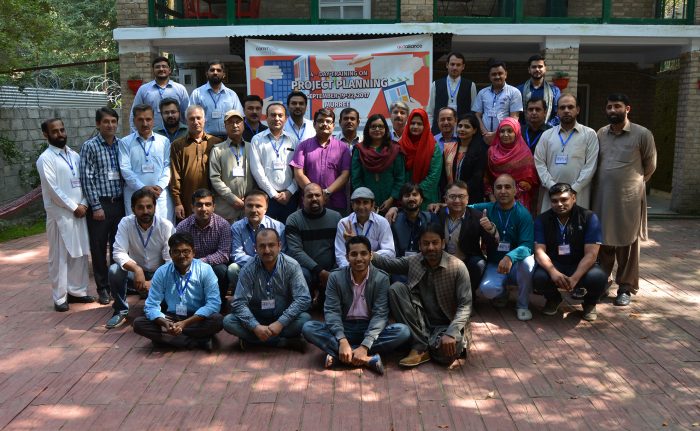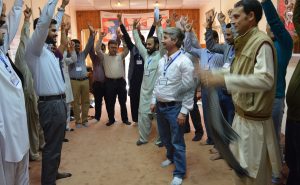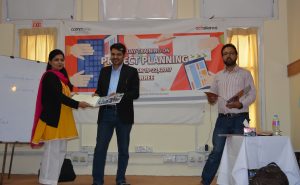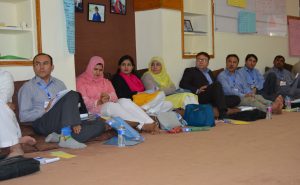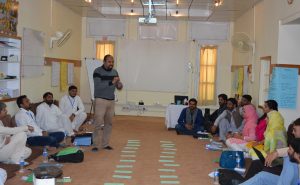Increasing Efficiency in Project Planning Processes
Community World Service Asia organized and hosted a four-day training on Project Planning for development and humanitarian organizations in the third week of September in Murree. The training focused on enhancing capacities of participants on project planning, its tools and their application, and donor-specific planning approaches and frameworks.
Thirty-five participants from eleven organizations including Aga Khan Agency for Habitat (AKDN), Helpage International, Malteser International, Better Cotton Initiative (BCI), Multan Discoes Trust Association, Sungi Development Foundation, Forum for Language Initiatives (FLI), AAR Japan, AWARD, The Punjab Educational Endowment Fund (PEEF) and Helping Hand for Relief & Development (HHRD) took part in the training. The training was facilitated by Zeeshan Noel, a development professional and trainer with expertise in project management, policy research and advocacy, and emergency response planning. Noel has been working in the development sector for almost ten years, and has been associated with development agencies, human/civil rights bodies, NGOs, and public sector offices.
Comprehensive project planning and effective compliance with the requirements of donor agencies is often one of the key challenges faced by humanitarian and development organizations. Many small and medium scale organizations in the region lack these formal skills or have very limited focus on this significant aspect of project management. Whereas, it is the efficiency and effectiveness of a project’s planning that determines its true success. Applying accurate planning tools help in the smooth execution of a project, continuous tracking of progress and towards readjusting implementation approaches at any stage of the project, needed to achieve the desired outputs.
The prime objective of the training was to create a conceptual clarity on the subject of and improve Project Planning skills, specifically in development phase of projects. This four days training was designed for mid-level managers with interest and prior experience in project planning and execution of development sector organizations. Participants, with prior basic knowledge on project planning and management, were selected for this training. Key concepts of pre-planning stage were introduced in the training, including understanding on Project Cycle Management (PCM), key results, problem tree analysis and Logical Framework Analysis (LFA). It helped the participants to thoroughly understand and provided a base for practically applying these tools.
On the first day, many participants were new to the concepts of PCM and Logical Framework Analysis, specially those who did not have any prior experience in the planning phase before. The timing of the training had to be adjusted and duration of some sessions had to be prolonged to make sure that all participants are on the same page and planned topics are fully covered. However, by day two the concepts were much clearer and actual practice on developing the plans was initiated.
By the end of training, all the participants were able to develop project planning and implementation tools for their organizations. Through group exercises, they developed problem tree analysis, LFA, Work Breakdown Structure (WBS), Performance Management Framework (PMF), Work plan and budget and costed work plan. In addition to the planning tools, M&E plans were developed and the concept of GSMART planning was also explained.
As a concluding exercise, an action plan for the participants was drafted in which each organization identified the gaps in their project planning and committed to introduce the newly learnt tools to overcome these challenges. Besides all learning, one of the key activities of the training was its fun night in which all participants, coming from different corners of the country, exhibited their cultures and tradition. They sang folk songs, danced and played games.
Muhammad Fazil Sardar, General Manager-Monitoring, Evaluation & Research, Pakistan Poverty Alleviation Fund (PPAF), participated as a chief guest on the final day of the training and awarded certificates to all the participants. Addressing the training, he talked about the importance of project planning tools especially problem tree analysis to identify the root causes.
Project planning tools carry equal significance in project cycle management and day to day life as well.





